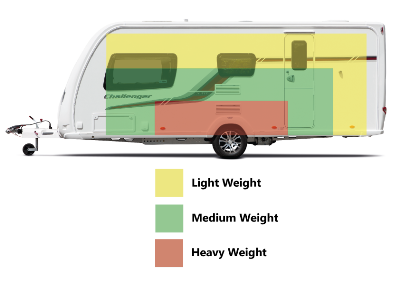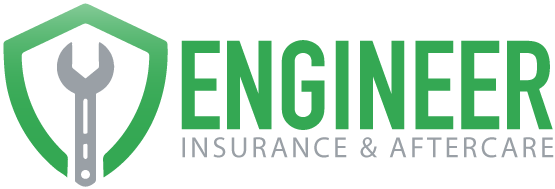Welcome to Morgan Caravan Services.
I am a fully qualified Caravan / Motorhome engineer, and been a keen caravanner myself for over 28 years, also being an active member of the Caravan Club for most of that time. I am proud to be an Approved Mobile Workshop with the AWS and now Engineer Aftercare Caravan warranty, which allows me to service any Caravan or Motorhome under its manufacturer and now Autoguard warranty. We are also approved to service ADRIA vehicles within their warranty period.
As an approved mobile workshop with Engineer Aftercare Ltd, I am also able to provide repairs for their Aftercare warranty products and to gain authority should our own customers need approval for work to be carried out under a claim.
I am pleased to hold the following nationally recognised qualifications:
- CITO Quality Training Mark (QTM) for Caravan and Motorhome servicing.
* City and Guilds in Caravan Servicing
* City and Guilds LV/ELV Systems, Equipment & Circuits
* CITO Electrical Test and Inspection (17th Edition)
* ACOPs Gas Certified
* Numerous other BTEC / City and Guilds, plus BSc engineering
* Truma trained service engineer
* AL-KO engineer
* Thetford trained engineer
* Alde certified service engineer
* BPW trained service engineer
* ADRIA approved service engineer
Morgan caravan Services is also an approved workshop for Engineer Aftercare warranty products provided by Autoguard. When a warranty claim has been authorised, we are able to undertake the repairs under that warranty to ensure complete peace of mind for our customers.

I offer a full range of services including Caravan, Motor home, Trailer, Utility trailer servicing (jet ski, boat etc.), Horse Box servicing Caravan pre purchase inspections, Caravan and Motorhome repairs, Electrical Installation Condition Report and Test (formally PIR), Caravan damp reports, Caravan and Motorhome appliance servicing and repair throughout South and West Wales.
Caravan servicing to include a comprehensive service schedule and comprehensive damp report as per AWS standards. Services include sundries, but exclude parts.
Comprehensive single axle service – £160.00 Comprehensive twin axle service – £180.00
Chassis service single axle – £110.00 Chassis service twin axle – £130.00
Motorhome habitation service – £135.00
Horsebox servicing includes: comprehensive service schedule Single axle £110.00 Twin axle – £130.00
ALDE Antifreeze change using ALDE recommended G12++ spec which will give 5 years of protection. (ALDE service equipment used) £120.00 Other services
Comprehensive Pre-purchase check. – £120.00 (Water ingress / appliance test / chassis report / general condition report)
Damp/ water ingress report – £65.00
Gas/Air soundness test – £55.00
Electrical Installation Condition Report and Test (formally PIR) – £145
Fridge Service – £55.00
Carver/ Truma heater service – £55.00
Fire Service – £55.00
Repairs – £37.50 / hour
Emergency call-out charge – £45.00 which includes the 1st hours labour
I offer a full range of Caravan and Motor home accessories and after market products along with a professional installation service. I am also an authorised supplier and fitter of Powrtouch products.
Top Tips from Morgan Caravan Services on loading your vehicle:
A caravan with too much weight will not only cause your car to struggle when accelerating or climbing hills, but will also affect its handling and stability, which makes overloading a real concern to your towing safety. Plus, in addition to the effects on the safety of your towing unit, overloading will also affect your fuel efficiency as the engine of your car will be struggling to pull the weight. The 85% ruleIn order to load your towing caravan correctly you need to be aware of a few ratios and weight restrictions. Your caravan should have a MTPLM (Maximum Technically Permissible Laden Mass, sometimes referred to as Maximum Laden Mass) as advised by the caravan manufacturer. The MTPLM refers to the maximum permissible weight of your caravan when fully loaded so in essence is an indication of how much food, clothes and equipment you can carry inside your caravan whilst towing it. It is recommended that the MPTLM of your chosen caravan should not exceed 85% of your car’s kerb weight. Your car’s kerb weight can usually be found in your car manual, but if unsure contact your car’s manufacturer or local dealer. There is an exception to this rule. If your car’s recommended maximum towing weight (i.e. the amount it can pull safely as advised by the car manufacturer) is lower than 85%, you should stick to this lower amount as your upper limit for your loaded caravan’s weight.
Measuring the weight of your caravan and contents: The easiest way to weigh items that are going into the caravan is using a set of luggage scales rather than attempting to see your bathroom scales with an awning bag in your arms! It may seem like a time consuming activity to weigh your equipment and luggage, but for the vast majority of items it will only need to be done once. Simply keep a record of what everything weighs in a safe place and then on each trip tot up what you are bringing along, plus the weight of any luggage which can obviously differ from one trip to the next. Once you have weights for everything that is going into the caravan you can simply add this to the manufacturers given weight of your caravan to find out your caravan’s laden weight (MPLW) As mentioned above this is the weight which should not exceed 85% of your car’s kerb weight or your car manufacturers given ‘maximum towing weight’.
Key items to weigh: Awning – including the canvas parts, poles, pegs, straps and any flooring used in the awning. Plus bicycles, portable televisions, BBQ Gas bottles and bedding. Remember when considering the weight in your caravan that there’s no reason to drive with any liquid in your fresh or waste water tanks – the fresh water tank can be quickly filled upon arrival at a campsite and the waste water (and any remaining fresh water) can be emptied before you leave.
Where to store the heaviest items? It’s important that the majority of the weight being carried inside the caravan is over the caravan’s wheels, and as low as possible to the floor, as this provides the greatest towing stability and lowest centre of gravity for the towing unit. If you position heavy items too close to the front of the caravan then you will put unnecessary weight on the nose of the caravan which will compress your car’s rear suspension, whereas too much weight near the rear of the caravan could cause the nose to lift reducing traction for the car’s rear wheels – both of which negatively affect the balance and handling of the car.

The diagram above gives a rough guide as to how the weight in your caravan should be distributed during towing. Notice that heavy weight items should be placed over the wheels, medium weight items should be no higher than window level, and only your lightest items should be placed in overhead lockers, or in the rear of the caravan. Generally speaking though most things are better stored as low as possible in light weight boxes or bags, as the vibrations of towing will cause items to move around during transit, so the last thing you want are damageable goods falling out of cupboards and breaking or damaging worktops The nose weight of your caravan is the downward force exerted on the tow ball of your car. You should be able to find out your car’s maximum nose weight figure in your owners handbook but a typical figure is around 75kg, although a larger estate might be 90kg and a 4×4 or SUV may be able to handle up to 100kg. Remember this is the noseweight, i.e. the weight exerted on the tow ball, and not the maximum weight your car can pull, which is obviously much higher. Of course, whilst this article outlines some of the maximum values you should never exceed, it is always better to aim for loading your caravan as lightly as possible. It’ll make towing and manoeuvring the caravan easier and will greatly reduce your fuel consumption, saving you money at the petrol pumps. Even if you are packing just an awning and someclothes though, be sure to stick to the weight positions in the diagram above, placing the heaviest items (such as your awning) over the caravan’s axle. Don’t forget you can also carry many heavy items in the boot of your car, which can help keep your caravan’s laden weight (MPTLM) down, but be sure not to exceed your car’s maximum weight limit too!
Other ways to increase your caravan’s towing stability: Many new caravans will also come fitted with a stabiliser bar alongside the caravan’s hitch, and this helps to increase your caravan’s towing stability and avoid excessive wobble on uneven road surfaces. If your caravan doesn’t have one fitted then consider buying one from a dealership as they can be picked up relatively cheaply and provide extra stability during towing. There are also some more advanced devices on the market which intelligently improve towing stability, such as the Al-Ko ATC (Automatic Trailer Control) and BPW iDC – these electronic devices prevent your caravan ‘snaking’ by applying small amounts of braking to the caravans wheels automatically when the device detects loss of stability in the caravan being towed. These devices use digital sensors to calculate when to apply the correct amount of braking pressure, and only when needed, to greatly improve the stability of the towing outfit and avoid your caravan snaking behind you – which can in a worst case scenario cause complete loss of stability and a major accident.
Help, advice and information on your doorstep is a pleasure and I can offer you the customer advice and a no obligation quote whenever you need them, so contact me for more information or to arrange a visit.


